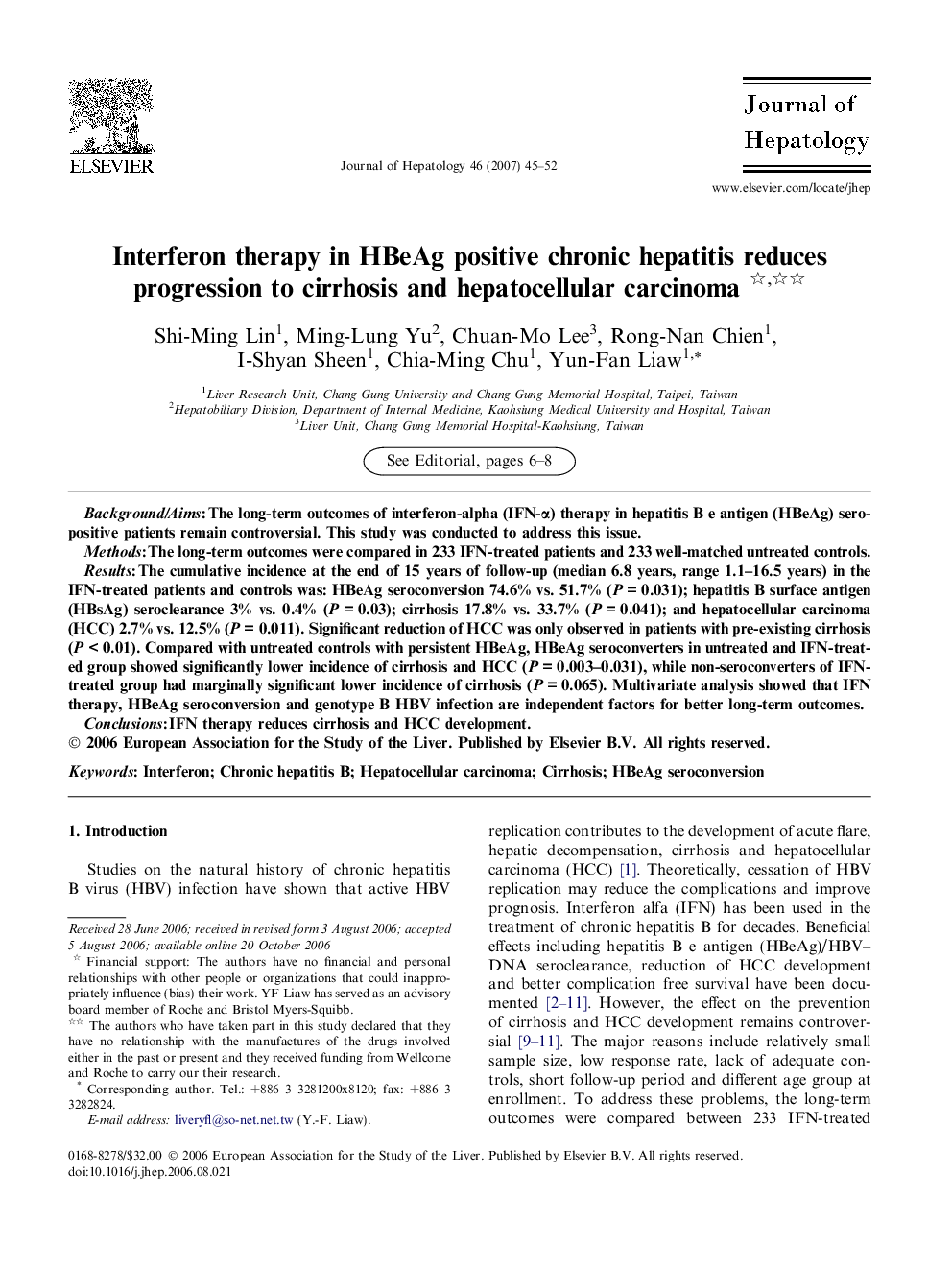| Article ID | Journal | Published Year | Pages | File Type |
|---|---|---|---|---|
| 3315035 | Journal of Hepatology | 2007 | 8 Pages |
Background/AimsThe long-term outcomes of interferon-alpha (IFN-α) therapy in hepatitis B e antigen (HBeAg) seropositive patients remain controversial. This study was conducted to address this issue.MethodsThe long-term outcomes were compared in 233 IFN-treated patients and 233 well-matched untreated controls.ResultsThe cumulative incidence at the end of 15 years of follow-up (median 6.8 years, range 1.1–16.5 years) in the IFN-treated patients and controls was: HBeAg seroconversion 74.6% vs. 51.7% (P = 0.031); hepatitis B surface antigen (HBsAg) seroclearance 3% vs. 0.4% (P = 0.03); cirrhosis 17.8% vs. 33.7% (P = 0.041); and hepatocellular carcinoma (HCC) 2.7% vs. 12.5% (P = 0.011). Significant reduction of HCC was only observed in patients with pre-existing cirrhosis (P < 0.01). Compared with untreated controls with persistent HBeAg, HBeAg seroconverters in untreated and IFN-treated group showed significantly lower incidence of cirrhosis and HCC (P = 0.003–0.031), while non-seroconverters of IFN-treated group had marginally significant lower incidence of cirrhosis (P = 0.065). Multivariate analysis showed that IFN therapy, HBeAg seroconversion and genotype B HBV infection are independent factors for better long-term outcomes.ConclusionsIFN therapy reduces cirrhosis and HCC development.
